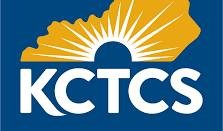Kentucky community colleges working to meet students’ ‘severe’ need for mental health support

By Sarah Ladd
Kentucky Lantern
About two-thirds of Kentucky community college students surveyed last year say they have experienced depression or anxiety, while one in five reported engaging in “self-injurious behavior.”
In response, the Kentucky Community and Technical College System is launching a Mental Health Strategy for its roughly 100,000 students.
KCTCS President Ryan Quarles told the Lantern that since taking on his role in 2023, he’s sought to prioritize mental health.

“We know that …. half of all community college students across the country struggle with mental health issues, and the report that we see here clearly shows that Kentucky is higher than national averages,” he said. “So, we still have to learn from other states, but the need is very severe right now.”
The largest provider of postsecondary education in the state, KCTCS will educate employees and students about mental health, create a centralized document full of mental health resources for the whole system, develop a peer wellness program in which students can volunteer as mental health ambassadors for those around them and provide staff with trainings on how to spot depression and anxiety in their students and more.
This comes in response to a 2024 Healthy Minds Study that showed that in the KCTCS system, 68% of surveyed students had depression and 66% had anxiety. That survey also showed 13% of students who took the survey were at risk of an eating disorder and 20% had already engaged in “self-injurious behavior.”
“We know that our students are facing (a) heightened degree of mental health issues that, probably, previous generations have not faced or is undiagnosed,” Quarles said.
Stressors facing students are numerous, he said: financial and housing concerns, food insecurity, upheaval following back-to-back floods in Eastern Kentucky, decimation by tornadoes in West and Western Kentucky and more.
Mental health challenges already existed prior to the global pandemic that hit Kentucky in 2020, but “Covid peeled the onion peel off to show how big of an issue this is,” Quarles said.
In 2022, the World Health Organization pointed to “unprecedented stress” during Covid-induced isolation as a key stressor driving worsening mental health. Children who switched to remote schooling also missed social milestones during that time.
KCTCS plans to apply for grant funding to support the mental health efforts, but for now, it comes out of the general budget. It’s too soon to say if the system will ask the General Assembly for project-specific funding in 2026, Quarles said.
“I do think that our legislators are aware of the mental health issues of our students,” he said, “and I think it’s come to them both from their constituents … but also higher ed in general is talking more about this, deservedly so, across the state.”
Christopher Hetherington, executive director of strategic enrollment management at KCTCS, said more and more college students have faced mental health issues over the last two decades, and research is finally revealing the extent of the problem.
“You’ve got the social media, you’ve got the constant, 24-hour news cycle,” he said. “You’ve got financial concerns, currently, within higher education.”
Students also face concerns over where to get enough food — and a large percentage wouldn’t be able to easily get $500 in an emergency, Hetherington said.
“Now that we have more resources, as far as data is concerned, we have a more clear calling to do this work than maybe would have been 10, 15, 20 years ago,” he said.
The Healthy Minds Study
The Healthy Minds Study, which involved 2,500 students from Feb. 26 to March 18, 2024, presented KCTCS with a call to action: better address students’ mental health needs.
The study showed, among other things:
- 86% of respondents described their financial situation as stressful.
- 40% reported having moderate to severe depression, with another 27% at mild.
- 38% reported having moderate to severe anxiety, with another 29% at mild.
- 29% of respondents felt isolated from others often, and another 36% felt that way some of the time.
- 72% reported that in the four weeks before being surveyed, they experienced some level of academic impairment caused by their emotional or mental difficulties.
- Among students screening positive for anxiety or depression, 27% received therapy.
- 23% of respondents reported that in the 12 months prior to being surveyed, they were worried about not having stable housing.
- 15% of respondents reported worrying about losing their steady place to live in the future, and 2% reported not having a steady place to live at all.
- 45% of respondents were worried about not having enough food in the past year.
Quarles said this data demonstrates “a serious issue” in Kentucky.
“I think that we always knew that mental health was an issue in America, but I think that during and post-COVID, it only revealed how big of a crisis it is,” he said. “And it’s not just unique to higher ed. It’s in K-12. It’s in workplace environments. It’s in adult populations. We know that this is a national crisis right now.”
Investments in mental health, Quarles said, should be viewed on the same level as any other type of student support. Prioritizing that, he said, will help students succeed in the long run.
“A healthier society is going to create a healthier economy as well, meaning that students will be better prepared to finish their degree, finish their certificate, and be more prepared to enter the job market and be able to fulfill the expectations that an employer may have,” he said. “And that, ultimately, increases the economic prosperity of the state as well.”
‘Nursing school is really hard:’ the pressures of being a student
Charlotte Boyd, who attended Jefferson Community and Technical College from 2019 to 2022 before transferring to Spalding University, believes such a mental health initiative would have helped her.
Boyd, who studied nursing, suffered panic attacks, found virtual learning during the worst of the Covid-19 pandemic to be “frustrating” and didn’t feel properly supported during an intensely stressful time in her life.
“Nursing school is really hard,” she said. “I’m not an anxious person in general, but I had to have a pretty full cardiac workup when I was at JCTC in the nursing program to make sure I wasn’t having cardiac issues. And I wasn’t. I was having … panic attacks. It was really, really horrible.”
Boyd is now working as a labor and delivery nurse at Norton Healthcare in Louisville.
Wendy Johnson, who attended Southcentral Kentucky Community and Technical College from 2006 to 2009 for respiratory therapy, faced mild stressors during her time as a student. She was the first person in her family to go to college and was often the oldest person in her classes, having started at age 31. That was “a little bit stressful,” she said. She also had two children, 11 and 7 years old.
Johnson, who lives in Scottsville and now works across the border in Tennessee, looked at school differently than some of her peers. She was a dental assistant and originally wanted to study dental hygiene.
“‘You’re going to give yourself a raise right here, and you’re going to have a good career,’” she told herself. Because she started school with children, studying was difficult at times.
“I would have to stay up late or … try to do things before the kids got home from school,” she recalled.
Still, she managed to earn a 4.0 grade point average and received an excellence award.
“At 18 years old,’ she said, “I don’t feel like I would have done as well.”
‘Get it right.’
KCTCS plans to do more surveys of students and monitor what works to improve mental health, Hetherington said.
In community college, there’s also a smaller window to help than at four-year universities, he said. “Our students are gone in a year or two.”
Each of the system’s 16 colleges will also have the freedom to customize its mental health approach since each campus population will have different needs.
“We’re very aware that … there tends to be more reluctance in rural areas for people to talk about mental health,” Quarles said. “We also know that perhaps in the more urban areas, there may be more resources or organizations addressing mental health as well. And so there’s going to be some nuances across the state, and this is also an opportunity for us to learn from each other.”
At the spring graduation ceremonies, KCTCS colleges awarded around 10,546 associate degrees, 1,716 diplomas and 31,062 certificates.
“We’re the entry point for the vast majority of Kentuckians starting college, and so it’s very important for us to address mental health needs of our students, because for a lot of our students, if they don’t have a good experience with us, they may never make it to that four-year university, or may never get that skill or trade to get a job,” Quarles said. “So it’s important for us to get it right.”